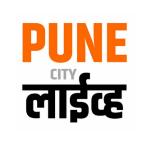B.A.B.Ed./B.Sc.B.Ed. CET: Syllabus and Marking Scheme ,बी.एड प्रवेश परीक्षा पाठ्यक्रम
 Introduction:
Introduction:
The B.A.B.Ed. /B.Sc.B.Ed. CET is a common entrance test for admission to the Bachelor of Arts/Bachelor of Science and Bachelor of Education courses in Maharashtra. The exam is conducted by the State Common Entrance Test Cell, Maharashtra. The exam is conducted in online mode and consists of three sections: General Knowledge, Mental Ability, and Teaching Aptitude. In this blog, we will discuss the syllabus and marking scheme for the B.A.B.Ed. /B.Sc.B.Ed. CET.
Section I: General Knowledge
This section aims to test the candidate’s knowledge of current affairs, history, geography, and Indian civics and economics. The syllabus for this section is as follows:
i) Basic General Knowledge: Questions in this area will cover topics such as books and authors, awards and honours, important national days, persons in news, and important current events.
ii) Science and Technology: Questions in this area will cover topics such as general science (up to SSC level), various inventions, and technology.
iii) History: Questions in this area will cover topics such as ancient, medieval, and modern Indian history (up to SSC level).
iv) Geography: Questions in this area will cover topics such as physical geography, Indian geography, and world geography (up to SSC level).
v) Indian Civics and Economics: Questions in this area will cover topics such as Indian constitution with reference to education, Indian economy, and Indian polity (up to SSC level).
The General Knowledge section will have 40 multiple-choice questions, and each question will carry one mark. The maximum marks for this section are 40.
भारतातील राज्य व राजधानी | State and Their Capital
Section II: Mental Ability
This section aims to test the candidate’s reasoning ability, logical thinking, and numerical ability. The syllabus for this section is as follows:
i) Reasoning Ability: Questions in this area will cover topics such as logical reasoning, analytical reasoning, and verbal reasoning.
ii) Statements and Conclusions: Questions in this area will test the candidate’s ability to draw logical conclusions from given statements.
iii) Letter and Number Series: Questions in this area will test the candidate’s ability to identify the pattern in a given series of letters or numbers.
iv) Analogy: Questions in this area will test the candidate’s ability to identify the relationship between two given words or phrases.
v) Odd Man Out: Questions in this area will test the candidate’s ability to identify the odd one out from a given set of words or numbers.
vi) Numerical Ability: Questions in this area will cover topics such as arithmetic, algebra, and geometry (up to SSC level).
vii) Logical Problems: Questions in this area will test the candidate’s ability to solve logical problems.
viii) Coding-Decoding: Questions in this area will test the candidate’s ability to decode a given code or to encode a given word.
The Mental Ability section will have 30 multiple-choice questions, and each question will carry one mark. The maximum marks for this section are 30.
Section III: Teaching Aptitude
This section aims to test the candidate’s interest in teaching, leadership qualities, emotional and social adjustment, and general awareness. The syllabus for this section is as follows:
i) Attitude towards Education, Students, and Teaching Profession: Questions in this area will test the candidate’s attitude towards education, students, and the teaching profession.
ii) Leadership Qualities: Questions in this area will test the candidate’s leadership qualities and ability to work in a team.
iii) Emotional and Social Adjustment: Questions in this area will test the candidate’s emotional and social adjustment abilities.
iv) Intra-personal Relations and Intra-personal Skills: Questions in this area will test the candidate’s intra-personal relations and skills.
v) General Awareness
reed more – click here

